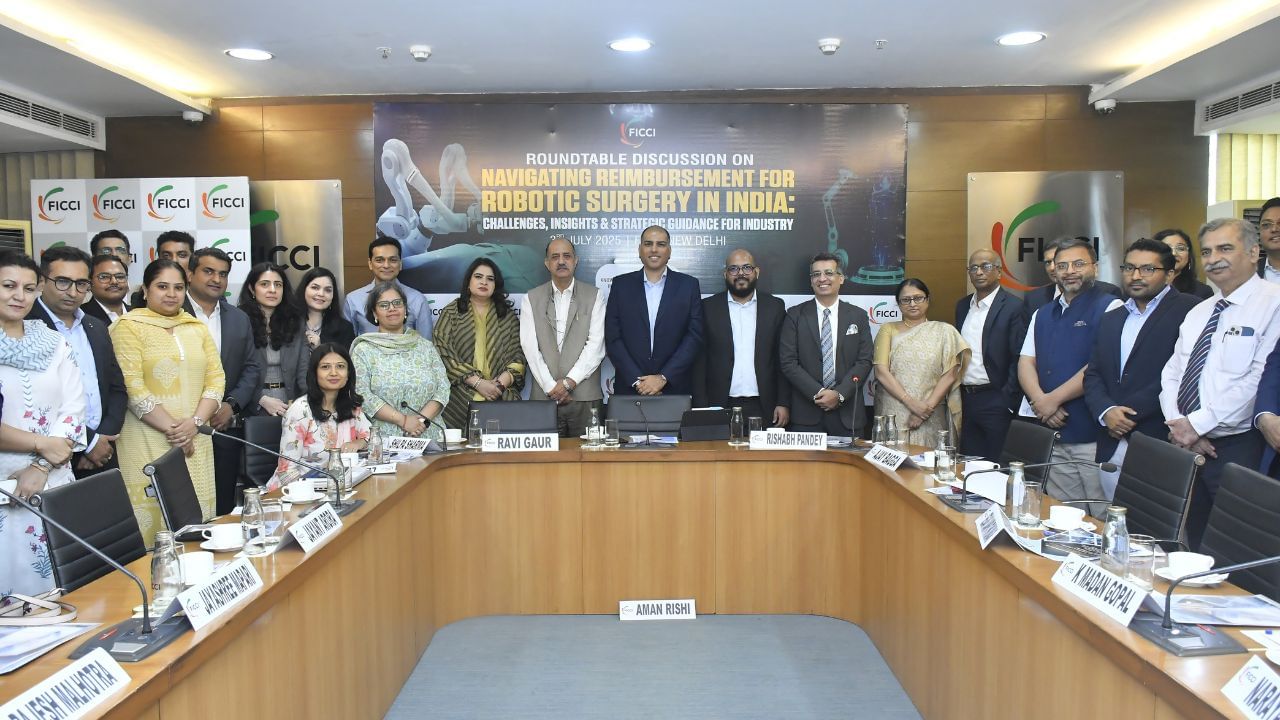New Delhi: The Federation of Indian Chambers of Commerce & Industry (FICCI) convened a high-level roundtable titled “Navigating Reimbursement for Robotic-Assisted Surgeries: Challenges, Insights & Strategic Guidance for Industry” at Federation House, New Delhi.
The event, organised in collaboration with Serexia Consultancy as Knowledge Partner, brought together key stakeholders from across India’s healthcare ecosystem- including insurers, surgeons, healthcare providers, medical technology manufacturers, policymakers, and regulators. At the heart of the discussion was a strong push to reimagine current reimbursement structures, particularly by addressing low claim payouts caused by restrictive sub-limits, which do not reflect the advancements or benefits of robotic-assisted surgeries (RAS).
While the inclusion of robotic surgeries under the Insurance Regulatory and Development Authority of India (IRDAI)’s Modern Treatment Methods list was welcomed as a progressive step, speakers emphasized the need to go further. Specifically, cost-effectiveness analyses and robust clinical outcome data are needed to justify broader inclusion across policies and to guide rational pricing.
“There is a compelling case for identifying select procedures where robotic surgery offers clear clinical and economic value,” said Mr. Segar Sampathkumar, Director – Health, General Insurance Council (GIC). “Insurers should consider taking initial steps toward reimbursement for such treatments, backed by robust evidence. While full coverage across all products may evolve over time, any additional cost beyond standard treatment could reasonably be borne by the customer. Fairness, transparency, and data-driven decisions must guide this journey.”
The discussion also pointed toward a collaborative roadmap for advancing reimbursement reform. Suggestions included piloting reimbursement models with select insurers and creating a national registry for robotic surgeries to support continuous outcome tracking and policy refinement.
“Reimbursement for robotic surgeries pilots in select government hospitals will help generate critical data on clinical outcomes and cost-effectiveness,” said Dr. K Madan Gopal, Advisor & Head, Public Health Administration, NHSRC. “Emphasis on surgeon training and evidence-based identification of procedures suitable for robotic surgery is essential to ensure safe, equitable access and sustainable integration into healthcare.”
A key recommendation was the creation of a multi-agency taskforce to oversee critical areas such as cost modelling, bundled pricing options, co-payment structures, inventory planning, and patient awareness campaigns. Several participants highlighted the need to empower patients with better information and choices—ensuring that advanced care is not limited by financial uncertainty.
“Patients should not be penalized for opting for advanced treatments like robotic joint replacement surgery over conventional methods,” said Dr. Ravi Gaur, Founder, DRG Path Labs and Director & Chairman, Medical Advisory Committee, OncquestLabs Ltd, in his closing remarks. “FICCI should constitute a task force with representation from all stakeholder groups to draft a guiding document focused on standardization, patient awareness, clarity in reimbursement protocols, and discussion on fair copay structures. This document will be taken to relevant forums to support equitable access and informed policymaking.”
FICCI announced that it will now lead the development of a comprehensive reimbursement guidance document that reflects these multi-stakeholder recommendations. This document will be submitted to the Ministry of Health & Family Welfare, IRDAI, and NITI Aayog for policy consideration.
The roundtable reaffirmed that reimbursement is not a post-treatment formality, it is a precondition for equitable access, clinical excellence, and sustainable innovation in India’s rapidly evolving healthcare landscape.
